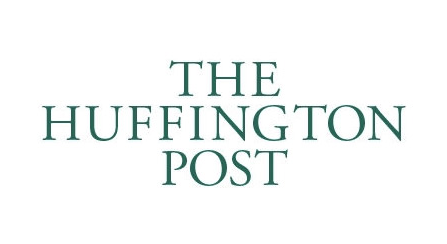Corruption, Price-Fixing & Misrepresentation in Obtaining Government Contracts
Price-Fixing Vendors Collude to Drive up the Price Paid by the United States.
One function of the Government-procurement process, naturally, is to obtain the best, most competitive price for the taxpayers. Contractors thwart this policy when they engage in collusion and undermine market competition. By conspiring, without Government knowledge, to artificially maintain prices for goods and services at a certain level, contractors boost their own profits at the expense of the Government. Similarly, contractors may conspire to “rig” a Government-bidding process, allowing first one contractor, then the next, to win the bid at a higher price-point than could have been obtained without the illicit agreement.
“Price-fixing, bid-rigging and other typical antitrust violations have a more devastating effect on the American public than any other type of economic crime. Such illegal activity contributes to inflation, destroys public confidence in the country’s economy, and undermines our system of free enterprise.” -Peter Goldberg, U.S. Department of Justice Antitrust Division
A typical example of this type of False Claims Act violation occurred when a group of ocean-shipping companies colluded to fix the price of Government cargo transportation contracts between the U.S. and the Philippines. The U.S. alleged that the directors of these companies had secretly communicated between themselves the rates that each would quote to the Government, thereby driving up the cost of the shipping ultimately paid.
Utilizing Bribery to Obtain Federal Contracts Violates the False Claims Act.
A contractor violates the False Claims Act (FCA) by offering an illegal incentive to a government agent in order to obtain a contract. For example, the Department of Justice has pursued an FCA actions against logistics suppliers alleged had provided illegal gratuities to Naval contracting employees in order to secure contracts.
Fraudulent Misrepresentation of Legal Status in Order to Obtain Contracts:
There are several Government programs designed to direct Government procurement dollars toward businesses that might otherwise find it difficult to win Government contracts. The United States Small Business Administration (SBA) Office of Government Contracts “works to create an environment for maximum participation by small, disadvantaged, service-disabled veteran-owned, and woman-owned small businesses in Federal government contract awards.”
To advance this goal, the SBA coordinates with federal agencies under the Small Business Act to conduct a significant number of Government procurements that are reserved for small or minority-owned businesses, depressed enterprises, and the like. The primary vehicle for advancing this policy is know as the 8(a) program.
To fraudulently hijack this stream of Government dollars, contractors that do not fit these categories misrepresent themselves as eligible for the awards. Frequently this is done by creating a “shell” company, apparently fitting the award criteria but in fact controlled and operated by other, ineligible entities. An example of a successful recovery of SBA funds involved a security contractor who formed an entity and secured 8(a) status by setting up a minority employee as a “figurehead” executive of the company. In reality, as the U.S. alleged and the contractor later admitted in criminal proceedings, the contractor owned the entity and made all executive decisions, rendering the SBA 8(a) certification a sham.
“Frohsin Barger & Walthall Wins $150 Million Whistleblower Fraud Settlement”
Our Attorneys are National Qui Tam Experts and Trial Lawyers.
“The Accomplishments of Frohsin Barger & Walthall warrant the wealth of accolades that it has received.” — Benchmark Plaintiff
Jim Barger and Elliott Walthall are the only private attorneys general in the country ever to be tapped as part of a Department of Justice trial team in a Medicare fraud jury trial. A noted expert on the False Claims Act (FCA), Jim Barger teaches upper-level courses on the subject as an adjunct professor at the University of Alabama School of Law, ranked among the nation’s top 15 law schools by Business Insider in 2016. Barger has appeared on HuffPost Live, Fox 6 Atlanta, and National Public Radio and his opinions on FCA Medicare enforcement are regularly sought by major newspapers, including The New York Times and The Washington Post.
Both Barger and Walthall have spoken on national panels about Medicare fraud for the American Bar Association, the American Association for Justice, and Taxpayers Against Fraud. In 2015, Barger was a featured symposium speaker on Medicare Fraud and the FCA at the Georgetown Law Center in Washington, DC. In 2016, Georgetown’s American Criminal Law Review published a new research article by Barger on the public-private partnership of the False Claims Act.
Frohsin Barger & Walthall Represents Whistleblowers Nationwide.
Frohsin Barger & Walthall investigates and litigates qui tam actions on behalf of whistleblowers in federal and state actions across the country. Our representation includes evaluating, investigating, and filing qui tam actions, as well as assisting prosecutors and investigative agents in pursuing cases and reaching settlements, with a high percentage of our cases resulting in government intervention. We have sealed cases in multiple states across the country and regularly travel to meet with United States Attorney’s offices, State Attorney General Offices, and United States Department of Justice attorneys in Washington, DC.
The False Claims Act Offers Protection for Whistleblowers.
Blowing the whistle on corporate fraud takes courage, and the law rewards that courage with certain protections. We understand that one of the most important aspects of representing corporate whistleblowers is guiding and protecting them through the difficult, stressful process of litigation. The False Claims Act (FCA) provides for a whistleblower’s case to be filed under seal and for the identity of the whistleblower to be protected during the course of the government’s investigation. Further, federal laws protect against retaliation by mandating the reinstatement of wrongfully fired employees at the same seniority level, as well as an award of double back-pay, interest, and attorneys’ fees. Finally, successful whistleblowers are entitled to up to 30% of any FCA recovery, which Congress has mandated is three times the amount of fraud that is proved through the whistleblower’s allegations, plus substantial civil penalties.
Frohsin Barger & Walthall whistleblower cases have been featured in the following media outlets, among others:
Click on the media outlet logo to read the featured story.




